The cultural workshops, part of the EU funded project “WEMIN: Migrant Women Empowerment and Integration”, were successfully implemented by the “Olympic Training & Consulting Ltd” (partner organization), supported by “HOU-DAISSy Research Group” (Coordinator). In particular, two artistic workshops were organized, concerning the creation of decorative and utility objects made from clay and fabric (31.10.-29.11.2019, Athens).
The workshops took place in suitable and well equipped premises in Athens city centre, was easily accessed by both native women and migrant / refugee women (MRW). In each workshop that lasted up to 24hours, took part women from Afghanistan, Iran, Ethiopia, Congo, Syria and Greece, who created lovely artistic and everyday objects like tablecloths, pillows, blankets, hair ribbons, lamps, bowls and jewelry.
Besides, most of the MRW who experienced the cultural workshops, had also participated in other WEMIN project activities, such as the Greek language courses and the empowerment and mentoring sessions. In the context of the cultural workshops’ implementation, they had the opportunity to practice the recently learned Greek vocabulary and test their language competences on the basis of common creativity, exchange and sharing of memories and experiences between women of different ethnic, linguistic and cultural backgrounds.
The interaction between women was true and vivid. During the meetings they had the opportunity to share information and get familiarized with customs, practices and perceptions different from their own, but also similar in many ways and built on common grounds. Apart from its overall objective, that is the coming together and interaction of MRW and native women, the workshops succeeded in consisting for migrant and refugee women a short and joyful release and refuge from a difficult everyday reality.
The handmade objects created in the workshops were presented at a special exhibition held in parallel and in the same venue that the d international closing conference of the WEMIN project was held in Athens (8 & 9 December 2019). The “Olympic Training & Consulting Ltd” organized the exhibition in collaboration with the women who took part in the cultural workshops. Moreover, migrant and refugee women had the opportunity to attend the conference presentations and discussions while many of them took active part in one of the conference’s interesting workshops titled “Intercultural Breakfast as an Integration tool”. . After the international conference and the exhibition were finished, the handmade objects were shared to the women who had created them.
While the WEMIN project is coming to an end, the women who participated in all the project’s actions have already expressed their wish for the project to continue, underlying the importance of this kind of projects in their integration in the host society.
The project is funded by the European Union’s Asylum, Migration and Integration Fund (776211-ΑΜIF-2016-AG-INTE) and includes a transnational partnership in 8 EU Member States (Greece, France, Italy, Spain, Portugal, Ireland, Germany and Sweden). In Greece, it is implemented in Athens by the DAISSy Research Group of Hellenic Open University (Coordinator) and Olympic Training & Consulting Ltd (partner).
You can be informed about the WEMIN project by visiting www.wemin-project.eu or by following #WEMIN. For further info, please send an email to info@daissy.eap.gr and olykek@olympiakokek.gr.
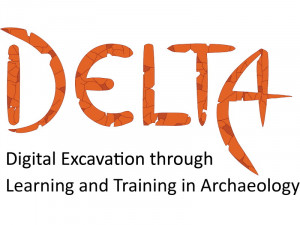 The DELTA (Digital Excavation through Learning and Training in Archaeology) project is a transnational programme funded under Erasmus+ EU program (Strategic Partnerships for Higher Education) and is coordinated by the DAISSy research group of Hellenic Open University (daissy.eap.gr), bringing together 4 partners from 3 European countries (Greece, Italy and Czech Republic). The project started in October 2019 and has a duration of 30 months.
The DELTA (Digital Excavation through Learning and Training in Archaeology) project is a transnational programme funded under Erasmus+ EU program (Strategic Partnerships for Higher Education) and is coordinated by the DAISSy research group of Hellenic Open University (daissy.eap.gr), bringing together 4 partners from 3 European countries (Greece, Italy and Czech Republic). The project started in October 2019 and has a duration of 30 months.
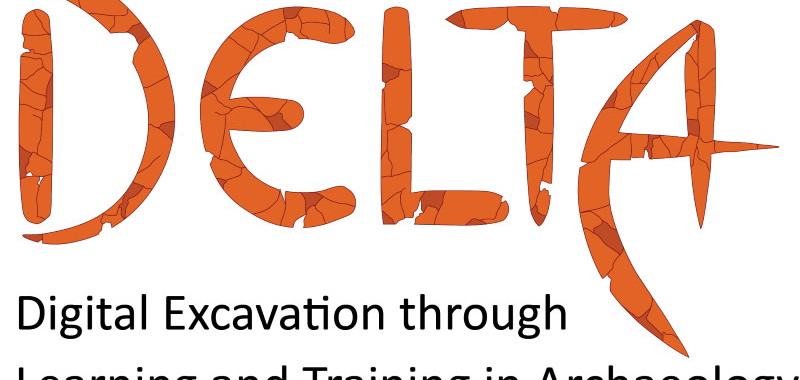
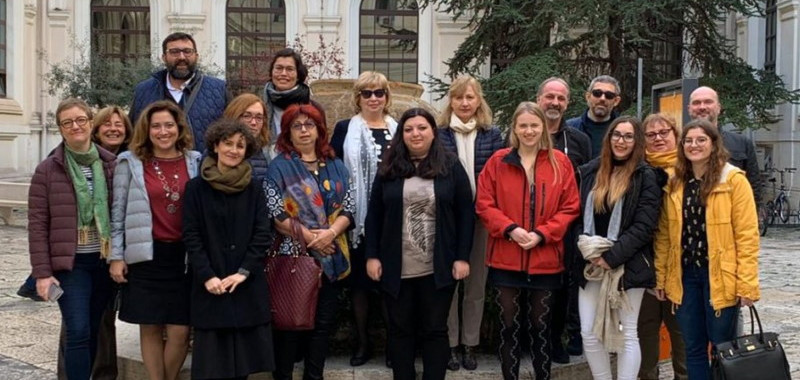
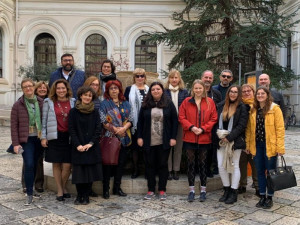 DAISSy Research Group of the Hellenic Open University participated in the Kick off Meeting of the three-year project “Boosting digital skills and competences of libraries in Europe”. BIBLIO is co-funded by the Erasmus+ Programme of the European Union under Action KA2 – Cooperation for innovation and the exchange of good practices – Sector Skills Alliances, and its official launch took place in Bari (Italy) on January 27th and 28th.
DAISSy Research Group of the Hellenic Open University participated in the Kick off Meeting of the three-year project “Boosting digital skills and competences of libraries in Europe”. BIBLIO is co-funded by the Erasmus+ Programme of the European Union under Action KA2 – Cooperation for innovation and the exchange of good practices – Sector Skills Alliances, and its official launch took place in Bari (Italy) on January 27th and 28th.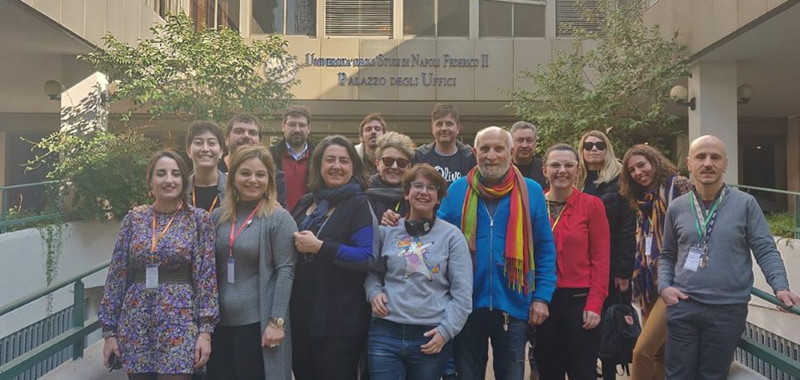
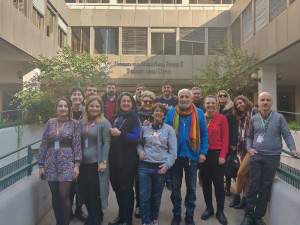
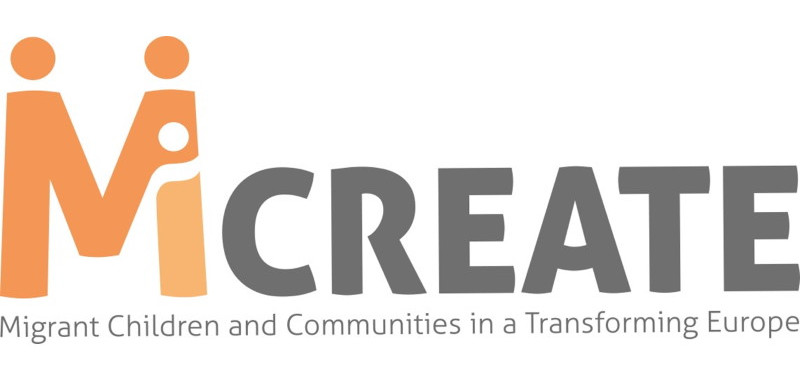
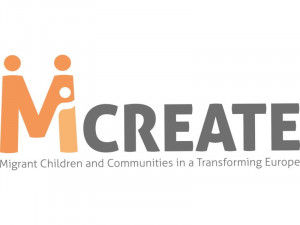 Βασικός στόχος του έργου είναι η ενίσχυση της ένταξης διαφορετικών ομάδων παιδιών που ανήκουν στις ευπαθείς ομάδες- και συγκεκριμένα μεταναστών και προσφύγων- υιοθετώντας μια παιδοκεντρική προσέγγιση με απώτερο στόχο την ένταξή τους σε εκπαιδευτικό και κοινωνικό επίπεδο. Μία από τις βασικές επιδιώξεις του προγράμματος είναι η επανεξέταση των υφιστάμενων πολιτικών ένταξης, των διαδικασιών ένταξης των μεταναστών και προσφύγων, με στόχο την ενδυνάμωσή τους.
Βασικός στόχος του έργου είναι η ενίσχυση της ένταξης διαφορετικών ομάδων παιδιών που ανήκουν στις ευπαθείς ομάδες- και συγκεκριμένα μεταναστών και προσφύγων- υιοθετώντας μια παιδοκεντρική προσέγγιση με απώτερο στόχο την ένταξή τους σε εκπαιδευτικό και κοινωνικό επίπεδο. Μία από τις βασικές επιδιώξεις του προγράμματος είναι η επανεξέταση των υφιστάμενων πολιτικών ένταξης, των διαδικασιών ένταξης των μεταναστών και προσφύγων, με στόχο την ενδυνάμωσή τους.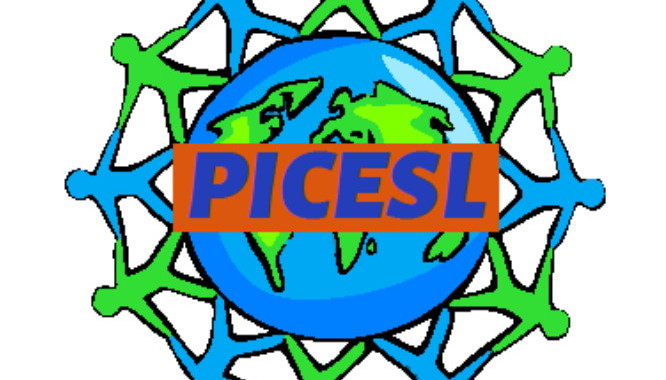
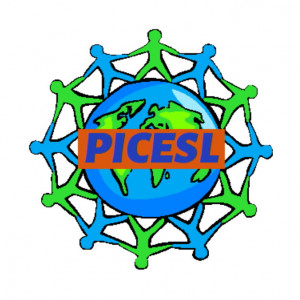 Προωθώντας την Ένταξη για την Αντιμετώπιση της Πρωϊμης Εγκατάλειψης του Σχολείου
Προωθώντας την Ένταξη για την Αντιμετώπιση της Πρωϊμης Εγκατάλειψης του Σχολείου
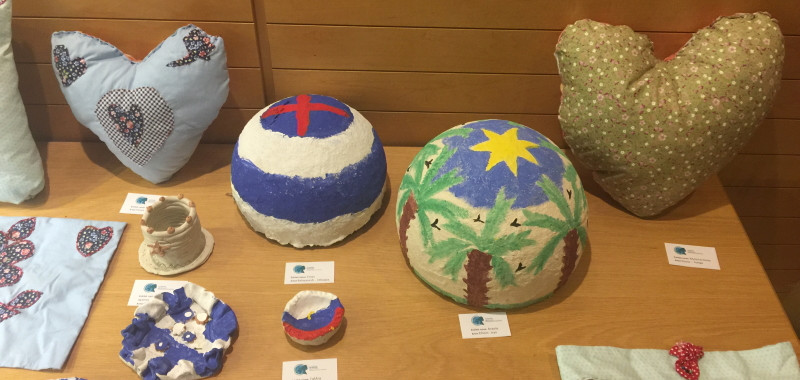
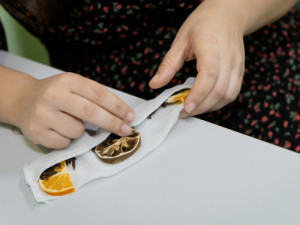
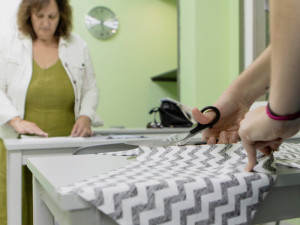
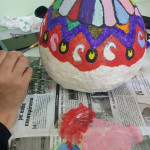
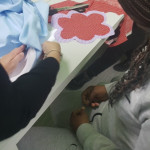
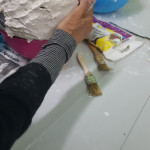
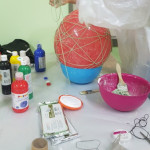
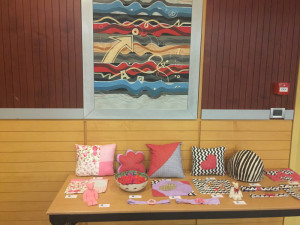
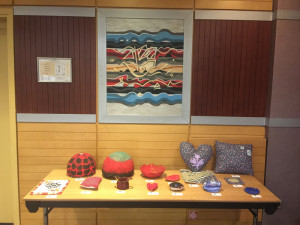
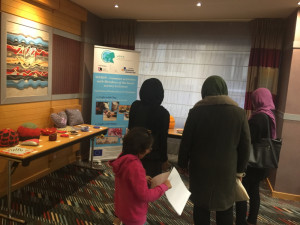
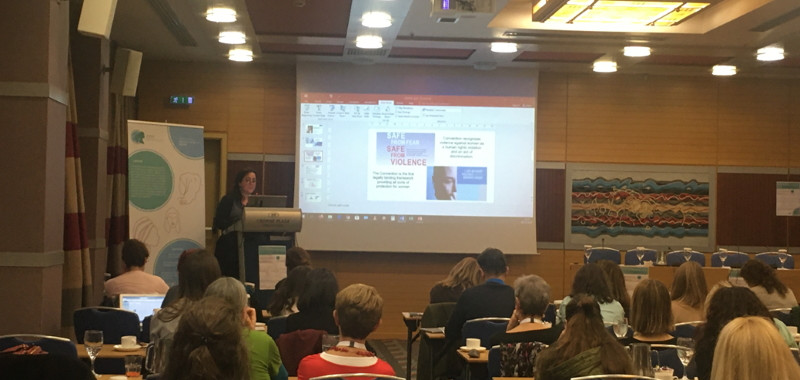
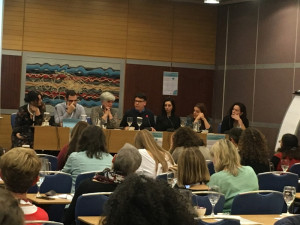
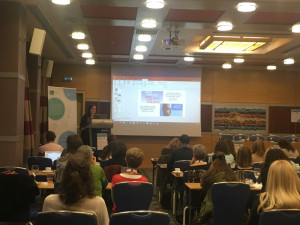
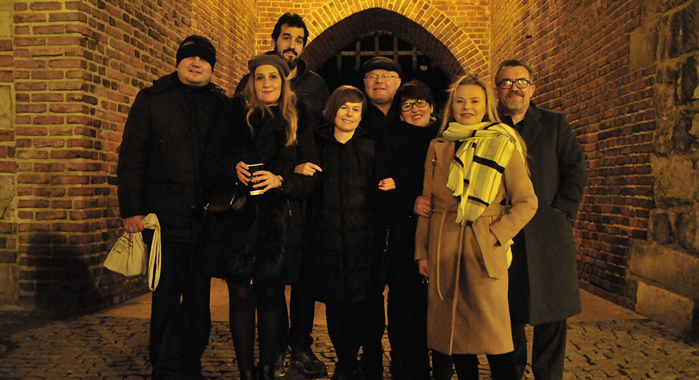
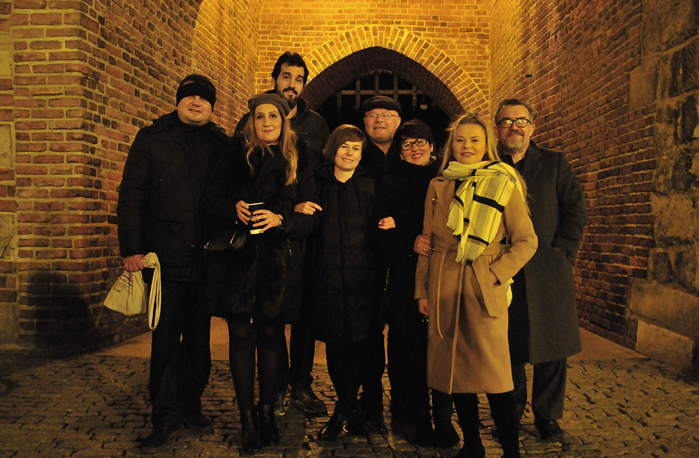
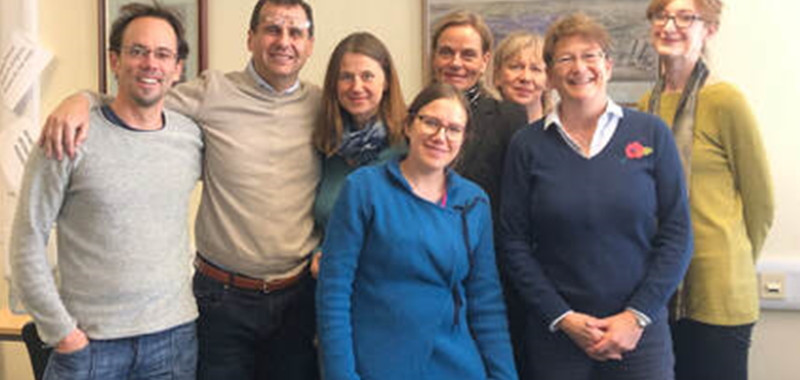
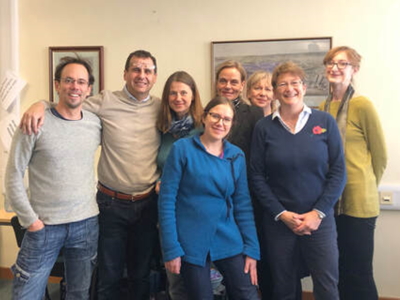 Το ΕΛΛΗΝΙΚΟ ΑΝΟΙΚΤΟ ΠΑΝΕΠΙΣΤΗΜΙΟ και η ερευνητική ομάδα DAISSy μαζί με το Πανεπιστήμιο του Hull, το EFIL και τρία άλλα πανεπιστήμια στην Ευρώπη έλαβαν επιχορήγηση έρευνας και ανάπτυξης προγραμμάτων Erasmus+ (443,540€) για να προάγουν την Παγκόσμια Ικανότητα στην εκπαίδευση των εκπαιδευτικών (Global Competence in Teacher Education)
Το ΕΛΛΗΝΙΚΟ ΑΝΟΙΚΤΟ ΠΑΝΕΠΙΣΤΗΜΙΟ και η ερευνητική ομάδα DAISSy μαζί με το Πανεπιστήμιο του Hull, το EFIL και τρία άλλα πανεπιστήμια στην Ευρώπη έλαβαν επιχορήγηση έρευνας και ανάπτυξης προγραμμάτων Erasmus+ (443,540€) για να προάγουν την Παγκόσμια Ικανότητα στην εκπαίδευση των εκπαιδευτικών (Global Competence in Teacher Education)